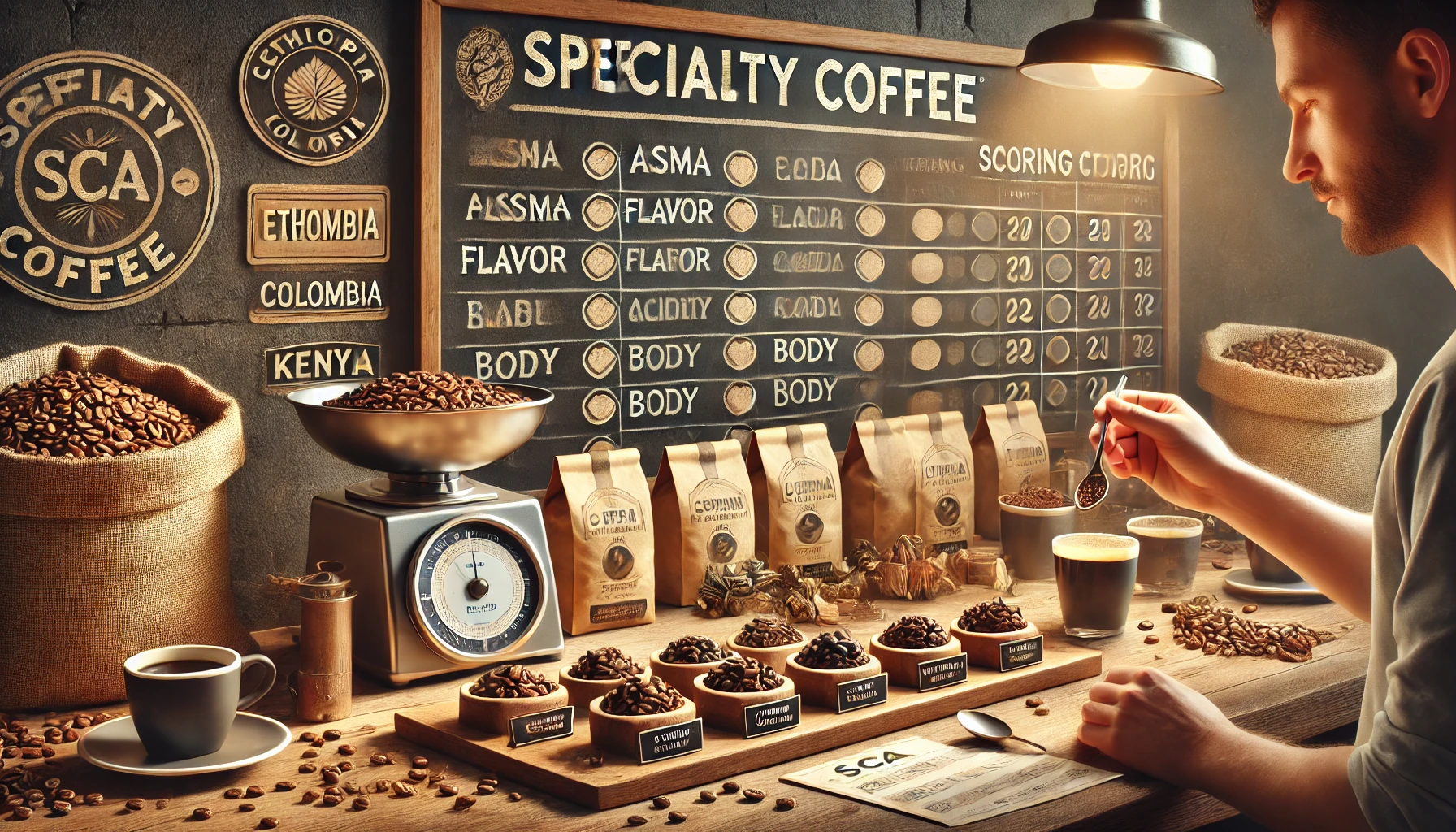You’ve probably seen the term “specialty coffee” on café menus or bean bags—but what does it actually mean? Is it just marketing, or is there a real standard behind it?
In the world of coffee, “specialty” isn’t just a buzzword—it’s a recognized classification based on quality, traceability, and care. It refers to coffee that has been graded by professionals and scored according to strict criteria.
In this article, we’ll break down what makes a coffee “specialty,” how it’s graded, and why it matters for producers, roasters, and coffee lovers like you.
What Is Specialty Coffee?
Specialty coffee refers to high-quality Arabica beans that have been evaluated by certified professionals (Q graders) and scored 80 points or higher on a 100-point scale, according to the standards set by the Specialty Coffee Association (SCA).
But specialty isn’t just about score—it’s about care at every step of the supply chain:
- Growing at the right altitude, in suitable climates
- Harvesting ripe cherries by hand
- Processing beans carefully to preserve flavor
- Roasting with precision and intent
- Brewing to bring out the best in each cup
From seed to cup, specialty coffee is about quality, transparency, and sustainability.
How Coffee Is Graded
After harvesting and processing, green coffee beans are graded using physical and sensory analysis.
1. Physical Grading
Beans are inspected for defects, which are categorized as:
- Primary defects (e.g. black beans, sour beans)
- Secondary defects (e.g. broken beans, shells)
To qualify as specialty, green coffee must have:
- No primary defects
- ≤ 5 secondary defects per 300g sample
2. Cupping Score
Professional tasters (called Q graders) evaluate the coffee through cupping, scoring based on ten categories:
- Fragrance/Aroma
- Flavor
- Aftertaste
- Acidity
- Body
- Balance
- Uniformity
- Clean Cup
- Sweetness
- Overall impression
Each category is scored from 6 to 10, and the total determines the classification:
| Score Range | Classification |
|---|---|
| 90–100 | Outstanding Specialty |
| 85–89.99 | Excellent Specialty |
| 80–84.99 | Very Good Specialty |
| <80 | Not Specialty Grade |
Arabica vs. Robusta
Specialty coffee is almost always Arabica, which has:
- More complexity in flavor
- Less bitterness
- Lower caffeine than Robusta
- Higher elevation growth (above 1,000 meters)
Robusta is generally used in commercial-grade blends or instant coffee, though specialty-grade Robusta is emerging in some regions with improved cultivation and processing.
What Influences Specialty Coffee Flavor?
1. Origin
Different regions have unique terroir—soil, altitude, climate—that shape flavor. For example:
- Ethiopia: Floral, citrus, tea-like
- Colombia: Balanced, sweet, with caramel or red fruit
- Kenya: Bold, juicy acidity, blackcurrant
- Panama (Geisha): Incredibly aromatic, jasmine, bergamot
2. Processing Method
How the coffee is processed after harvest affects taste:
- Washed: Clean, bright, high clarity
- Natural: Fruity, heavier body
- Honey: Sweet, balanced, creamy texture
3. Roasting Style
Specialty coffee is typically light to medium roasted to highlight origin characteristics, not mask them. Each roast is tailored to a specific bean and flavor goal.
4. Freshness
Specialty coffee is usually roasted to order and labeled with roast date, not just an expiration date. Freshness matters for peak flavor.
Specialty Coffee and Direct Trade
One of the pillars of the specialty industry is transparency. Many specialty roasters buy coffee via direct trade, working closely with producers to:
- Pay fair and often premium prices
- Encourage quality improvement
- Support environmental and social initiatives
This contrasts with commodity-grade coffee, where prices are often unstable and farmers face low returns.
Why Specialty Coffee Matters
For the consumer, specialty coffee means:
- Better taste and diversity of flavor
- Information about the coffee’s origin and producer
- Confidence in ethical sourcing and sustainability
For the farmer, it can mean:
- Higher income for higher-quality product
- Long-term partnerships with roasters
- Investment in better equipment, education, and community
Is It Worth the Price?
Yes—if you value quality, flavor, ethics, and traceability, then specialty coffee is absolutely worth it. While it may cost more than supermarket blends, you’re not just paying for beans—you’re supporting a chain of quality and integrity.
And with manual brewing methods like pour-over or French press, a small bag of specialty coffee can go a long way—especially when brewed correctly.
Final Thoughts: A Cup Above the Rest
Specialty coffee is about more than taste—it’s about intention, care, and respect. From the farmers growing cherries on remote mountainsides to the baristas crafting your cappuccino, every step is driven by a passion for excellence.
So next time you sip a cup labeled “specialty,” remember: you’re experiencing coffee at its very best—measured not only in points, but in people, places, and purpose.
